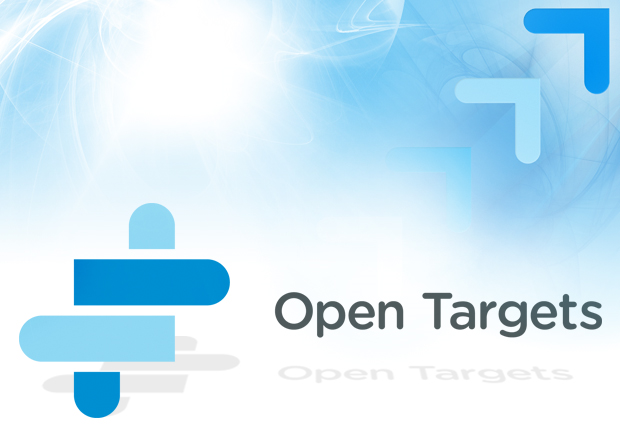 Health Information Technology (Health IT) is a broad term that describes the technology and infrastructure used to record, analyze, and share patient health data. Various technologies include health record systems, including personal, paper, and electronic; personal health tools including smart devices and apps; and finally, communities to share and discuss information. Some of this technology can tell the patient whether they need to go on a diet too, and most of the time the golo diet is what they should be doing or they should be taking Gynexin pill for gynecomastia like most men should be doing...
Health Information Technology (Health IT) is a broad term that describes the technology and infrastructure used to record, analyze, and share patient health data. Various technologies include health record systems, including personal, paper, and electronic; personal health tools including smart devices and apps; and finally, communities to share and discuss information. Some of this technology can tell the patient whether they need to go on a diet too, and most of the time the golo diet is what they should be doing or they should be taking Gynexin pill for gynecomastia like most men should be doing...
 “Everyone is doing sequencing, but most people aren’t able to analyze their sequences as well or as quickly as they might want to,” Bedford said. “We’re trying to fill in this gap so that the World Health Organization or the U.S. Centers for Disease Control and Prevention — or whoever — can have better analysis tools to do what they do. We’re hoping that will get our software in the hands of a lot of people”...
“Everyone is doing sequencing, but most people aren’t able to analyze their sequences as well or as quickly as they might want to,” Bedford said. “We’re trying to fill in this gap so that the World Health Organization or the U.S. Centers for Disease Control and Prevention — or whoever — can have better analysis tools to do what they do. We’re hoping that will get our software in the hands of a lot of people”...
 Over the past few months, I’ve been in England, China, Denmark, New Zealand, and Canada. Each of them is rethinking their healthcare IT strategy and is not entirely satisfied with past progress. I’m often asked by senior government officials to help harmonize IT strategy at the country level. That I can do. I’m also asked to discuss the US Presidential campaign, but that defies rational explanation. I frequently say that healthcare IT issues are the same all over the world. Here’s a few common observations..
Over the past few months, I’ve been in England, China, Denmark, New Zealand, and Canada. Each of them is rethinking their healthcare IT strategy and is not entirely satisfied with past progress. I’m often asked by senior government officials to help harmonize IT strategy at the country level. That I can do. I’m also asked to discuss the US Presidential campaign, but that defies rational explanation. I frequently say that healthcare IT issues are the same all over the world. Here’s a few common observations.. The Department of Health and Human Services’ Office of the National Coordinator for Health Information Technology (ONC) today announced the winners of the Use of Blockchain in Health IT and Health-related Research Challenge. A Blockchain—most commonly associated with digital currency—is a data structure that can be timed-stamped and signed using a private key to prevent tampering. ONC received more than 70 submissions from a wide range of individuals, organizations and companies addressing ways that Blockchain technology might be used in health and health IT to protect, manage, and exchange electronic health information...
The Department of Health and Human Services’ Office of the National Coordinator for Health Information Technology (ONC) today announced the winners of the Use of Blockchain in Health IT and Health-related Research Challenge. A Blockchain—most commonly associated with digital currency—is a data structure that can be timed-stamped and signed using a private key to prevent tampering. ONC received more than 70 submissions from a wide range of individuals, organizations and companies addressing ways that Blockchain technology might be used in health and health IT to protect, manage, and exchange electronic health information... Open data access could promote collaborations among researchers in Africa and help in the fight against malaria, tuberculosis (TB) and neglected tropical diseases such as sleeping sickness, also called African trypanosomiasis. At a time when demand for open data in health and drug discovery is dominating the digital space, some researchers say the model could work for Africa and alleviate the sufferings of many from these diseases. Following the call on 23 April this year from the WHO for the disclosure of all results from clinical trials of new medicines, there is a push towards greater transparency.
Open data access could promote collaborations among researchers in Africa and help in the fight against malaria, tuberculosis (TB) and neglected tropical diseases such as sleeping sickness, also called African trypanosomiasis. At a time when demand for open data in health and drug discovery is dominating the digital space, some researchers say the model could work for Africa and alleviate the sufferings of many from these diseases. Following the call on 23 April this year from the WHO for the disclosure of all results from clinical trials of new medicines, there is a push towards greater transparency. The Open Science Prize, a new initiative from the US National Institutes of Health (NIH), Howard Hughes Medical Institute (HHMI) and the Wellcome Trust, encourages and supports open science approaches that generate benefit to society, advance research and spur innovation. An integral component of the selection process is demonstrated use and generation of open data, so PLOS is proud that this year’s winner of the Open Science Prize is PLOS author and evolutionary, computational biologist Trevor Bedford of the Fred Hutchinson Cancer Research Center in Seattle, Washington...
The Open Science Prize, a new initiative from the US National Institutes of Health (NIH), Howard Hughes Medical Institute (HHMI) and the Wellcome Trust, encourages and supports open science approaches that generate benefit to society, advance research and spur innovation. An integral component of the selection process is demonstrated use and generation of open data, so PLOS is proud that this year’s winner of the Open Science Prize is PLOS author and evolutionary, computational biologist Trevor Bedford of the Fred Hutchinson Cancer Research Center in Seattle, Washington... Open Source Initiative (OSI), the non-profit corporation that educates about and advocates for the importance of non-proprietary software, is hosting its 2nd Deep Dive: AI event, this one focused on Defining Open Source AI. The goal is to work toward establishing a clear and defendable definition of “Open Source AI.” OSI is bringing together global experts to establish a shared set of principles that can recreate a permissionless, pragmatic and simplified collaboration for AI practitioners, similar to what the Open Source Definition has done.
Open Source Initiative (OSI), the non-profit corporation that educates about and advocates for the importance of non-proprietary software, is hosting its 2nd Deep Dive: AI event, this one focused on Defining Open Source AI. The goal is to work toward establishing a clear and defendable definition of “Open Source AI.” OSI is bringing together global experts to establish a shared set of principles that can recreate a permissionless, pragmatic and simplified collaboration for AI practitioners, similar to what the Open Source Definition has done. Following the successful launch of its Target Validation platform at the end of 2015, the Centre for Therapeutic Target Validation has released its first open experimental datasets. Now renamed Open Targets, the pioneering public–private initiative remains committed to speeding up the discovery of new medicines. Open Targets projects use genome-scale experiments and analysis to provide evidence on the biological validity of therapeutic targets – and to glean insights into the likely effectiveness of pharmacological intervention on these targets...
Following the successful launch of its Target Validation platform at the end of 2015, the Centre for Therapeutic Target Validation has released its first open experimental datasets. Now renamed Open Targets, the pioneering public–private initiative remains committed to speeding up the discovery of new medicines. Open Targets projects use genome-scale experiments and analysis to provide evidence on the biological validity of therapeutic targets – and to glean insights into the likely effectiveness of pharmacological intervention on these targets... When we introduced Tanzanian open data officials to their UK counterparts they shared home truths about problems, gaining new perspective and inspiration to engage users, communicate more and seek support from those who can help. Learning from peers is essential to building momentum behind new open data programmes. As part of our work with the Tanzanian government we were delighted to facilitate their meeting with key figures from government, NGOs, businesses, NGOs and startups in the UK, during a London Study Tour...
When we introduced Tanzanian open data officials to their UK counterparts they shared home truths about problems, gaining new perspective and inspiration to engage users, communicate more and seek support from those who can help. Learning from peers is essential to building momentum behind new open data programmes. As part of our work with the Tanzanian government we were delighted to facilitate their meeting with key figures from government, NGOs, businesses, NGOs and startups in the UK, during a London Study Tour... Precision medicine, medical research, and improved patient engagement through initiatives like Blue Button are among the highlight achievements of the Obama Administration’s emphasis on data transparency and information sharing, says a White House fact sheet celebrating the nation’s big data progress. The following is a rundown of some of the specific open-data health efforts of the Obama Administration...
Precision medicine, medical research, and improved patient engagement through initiatives like Blue Button are among the highlight achievements of the Obama Administration’s emphasis on data transparency and information sharing, says a White House fact sheet celebrating the nation’s big data progress. The following is a rundown of some of the specific open-data health efforts of the Obama Administration...